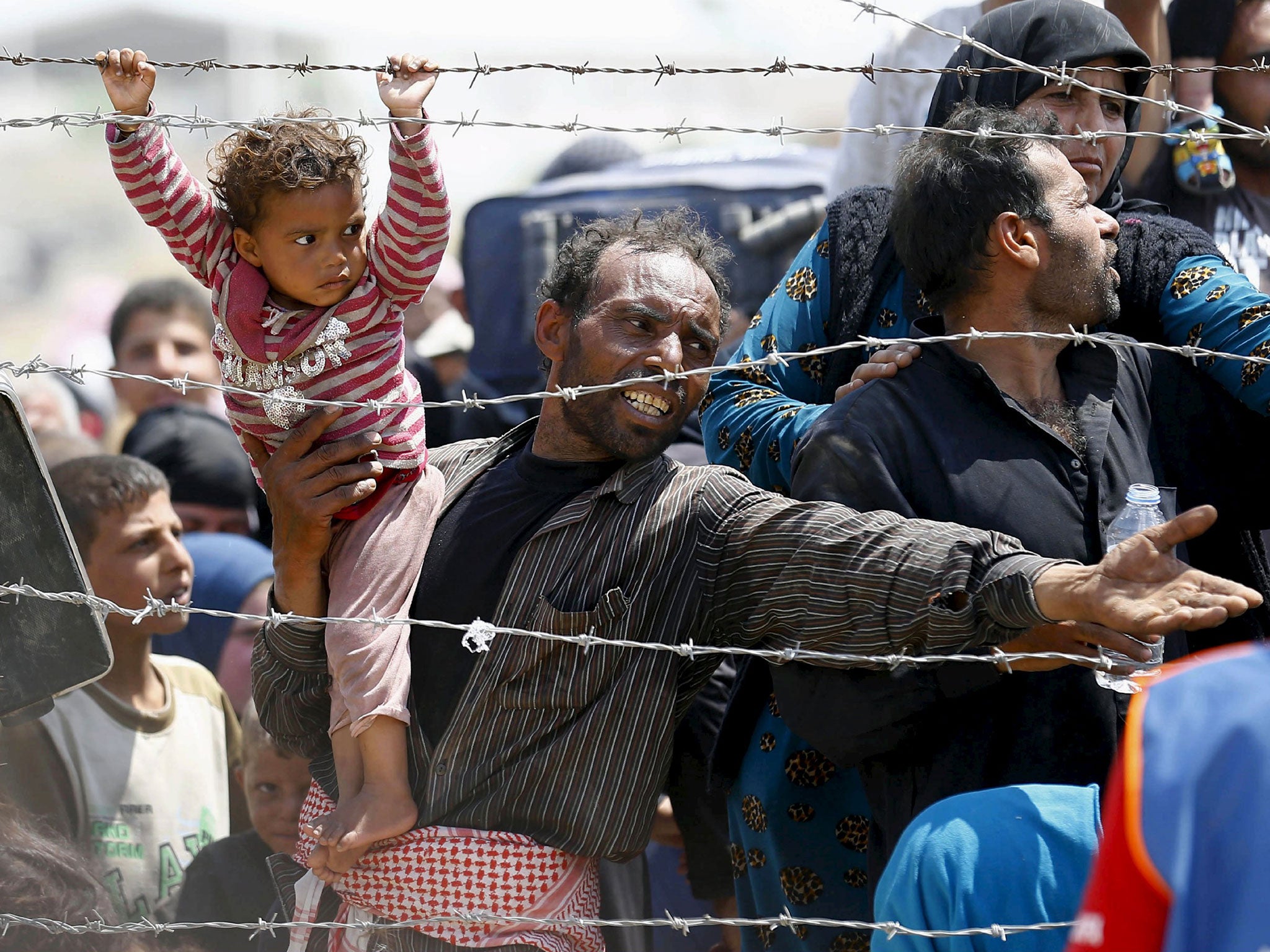Why we've decided to call it Europe's refugee crisis
Rather than Europe's migrant problem


Your support helps us to tell the story
From reproductive rights to climate change to Big Tech, The Independent is on the ground when the story is developing. Whether it's investigating the financials of Elon Musk's pro-Trump PAC or producing our latest documentary, 'The A Word', which shines a light on the American women fighting for reproductive rights, we know how important it is to parse out the facts from the messaging.
At such a critical moment in US history, we need reporters on the ground. Your donation allows us to keep sending journalists to speak to both sides of the story.
The Independent is trusted by Americans across the entire political spectrum. And unlike many other quality news outlets, we choose not to lock Americans out of our reporting and analysis with paywalls. We believe quality journalism should be available to everyone, paid for by those who can afford it.
Your support makes all the difference.Europe is seeing a crisis at the moment, but nobody can agree on what sort of crisis it is. If you believed some of the language used by British politicians – David Cameron’s description of those arriving in Calais as a ‘swarm’, for instance, or Philip Hammond’s characterisation of them as a group of people ‘marauding around’ who will threaten Europe’s ‘standard of living and social structure’ if allowed to settle in the UK – then you might be forgiven for thinking that this is a crisis for Britain or Western Europe; that it’s just an immigration problem which can be solved with more dogs and bigger, reinforced fences. According to commentators like Katie Hopkins, who infamously referred to those rescued from sinking boats in the Mediterranean as ‘cockroaches’, then the solution is little more than a large-scale exercise in pest control.
The truth is that the crisis isn’t ours at all. Those in crisis are not the citizens of Western European towns faced with the prospect of Syrian refugees moving in nearby. Those in crisis are the people so desperate to escape hardship, war, persecution and poverty that they have made a notoriously treacherous journey to Europe.
The risks of this journey are myriad and real: in the last seven days alone, 71 refugees were found dead inside an abandoned lorry on the side of the road in Austria, and 50 were asphyxiated inside the hold of a boat off the coast of Libya. Thousands have drowned, suffocated, died of thirst or starved. In April, it was reported by the International Organisation for Migration that the death toll in the Mediterranean was already 30 times higher than it had been in 2014.
In recognition of the fact that this is a humanitarian crisis of international proportions, rather than a British problem, the Independent will no longer be using the term ‘migrant crisis’ when ‘refugee crisis’ can be employed instead. In the last few months, semantics have become very important when addressing the plight of people crossing the ocean to seek a better life for themselves in Europe – and ‘migrant’ has become synonymous with ‘problem’ or ‘member of the swarm’.
The context of its usage, especially in politics, has allowed the word to be dehumanising. While its definition is supposedly neutral, meaning someone who leaves their home country for economic reasons, we now feel that it is sufficiently contentious to cease using it as a descriptive term for the entire crisis except when absolutely necessary.
Refugees will be referred to as such, while those who do technically meet the definition of migrant will be merely referred to as ‘people’ where possible. However, there will be some instances when we choose to use the term ‘migrant crisis’. In this way we hope to counteract the way in which ‘migrant’ or ‘migrant crisis’ is now being used by other media to scaremonger and to stir up hatred and suspicion toward desperate people.
We are proud of the way that we have chosen to respond to the humanitarian crisis in Europe and the plight of these refugees. In articles such as ‘It’s time to stop the politics of fear and treat these people like human beings’, ‘No, Philip Hammond, migrants don’t threaten our standard of living – your policies do’, ‘Don’t call Calais a migrant problem: it’s a humanitarian crisis’, and ‘In treating needy refugees like invaders, we risk losing our humanity’, we have continually emphasised the need for the British government to show their compassion and responsibility towards people who have fled impossible and unbearable situations.
We will continue to give a platform to those who write with empathy and humanity about refugees across the continent, and we hope that by rejecting the use of ‘migrant’ as a catch-all description in our articles we can also preserve the dignity of people who have been continually attacked, dehumanised and insulted in the UK press and UK politics.
We're urging people to:
● Show your friends you support the UK taking in its fair share of refugees by signing a petition urging the Government to take action at change.org/refugeeswelcome
● Join our social media campaign – #refugeeswelcome – to prove that those in real need of a safe haven will receive a compassionate welcome from many of us here
● Share this link so your friends know to do the same
Join our commenting forum
Join thought-provoking conversations, follow other Independent readers and see their replies
Comments